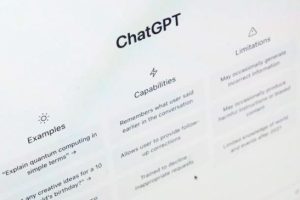Interacting with an AI chatbot can become repetitive over time, as you find yourself repeatedly explaining your email preferences and listing the weekend activities you’ve already completed multiple times.
OpenAI is making substantial efforts to address this issue and improve the personalization of its bot.
OpenAI is introducing a new feature called “memory” that allows the bot to retain information about users and their conversations for future reference.
There are two ways in which memory operates. Users have the ability to instruct ChatGPT to retain certain information about them.
For instance, they may specify that they exclusively work with Javascript for coding, or that their superior’s name is Anna, or even that their child has an allergy to sweet potatoes.
Also, ChatGPT can gradually accumulate those details, retaining information about you as you inquire and receive responses.
Regardless of the situation, the aim is to make ChatGPT feel more personalized and intelligent without requiring constant reminders.
OpenAI has unveiled a memory feature for custom GPT models, exemplifying its application through Books GPT. With memory activated, the model can autonomously recall users’ reading history and preferred book genres.
This feature is anticipated to find utility in various GPT Store offerings, such as Tutor Me for personalized courses, Kayak for streamlined travel preferences, and GymStreak for comprehensive progress tracking.
ChatGPT’s Memory Feature Raises Privacy Concerns

While the introduction of memory to ChatGPT addresses a critical need, it raises privacy concerns. OpenAI’s strategy aligns with the approach taken by other internet services, observing user interactions to build a profile.
However, this method of learning about users has sparked discomfort among many who are wary of their data being used for training and personalization.
OpenAI asserts that users will have control over ChatGPT’s memory. The system is designed not to retain sensitive information, like health-related details.
Users can inquire about the stored data and instruct the bot to forget or delete information using the new Manage Memory section in settings.
Additionally, OpenAI introduces Temporary Chat as an incognito mode, allowing brief conversations without influencing ChatGPT’s long-term memory. Users also have the option to disable memory across their entire account.
By default, memory will be activated, and OpenAI plans to utilize memories for training its models in the future.
However, companies using ChatGPT Enterprise and Teams will not have their data sent back for model improvement.
This memory feature is currently in a testing phase, available to a limited number of users. OpenAI acknowledges the potential for this feature to become integral to the ChatGPT experience, recognizing both its advantages and potential drawbacks.
As artificial intelligence systems advance, the integration of memory capabilities poses implications for the evolving nature of human-bot interactions.
